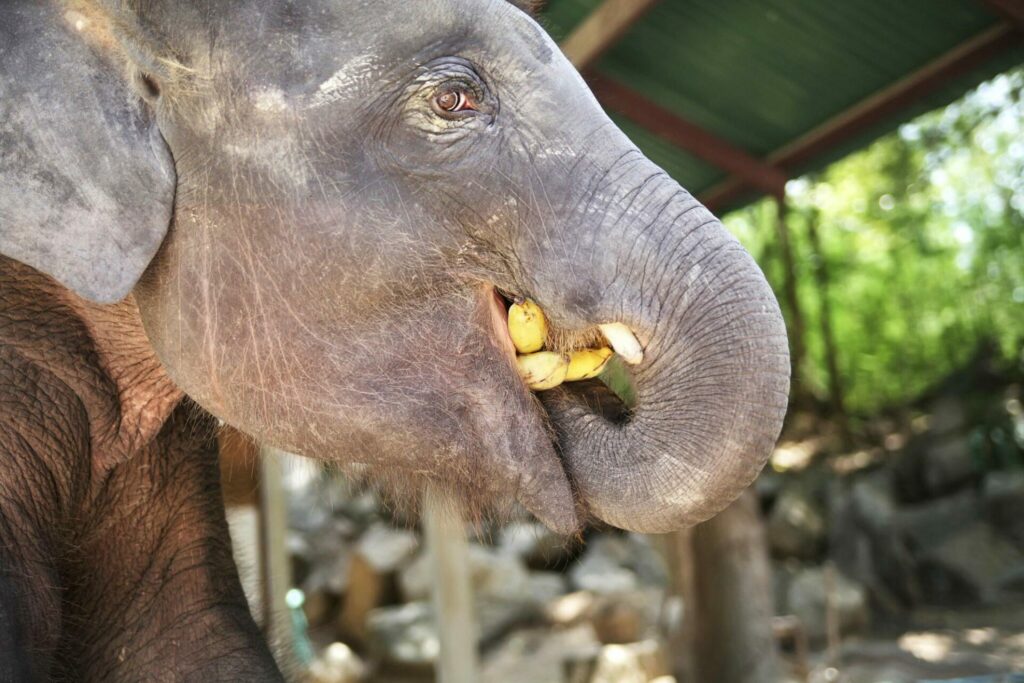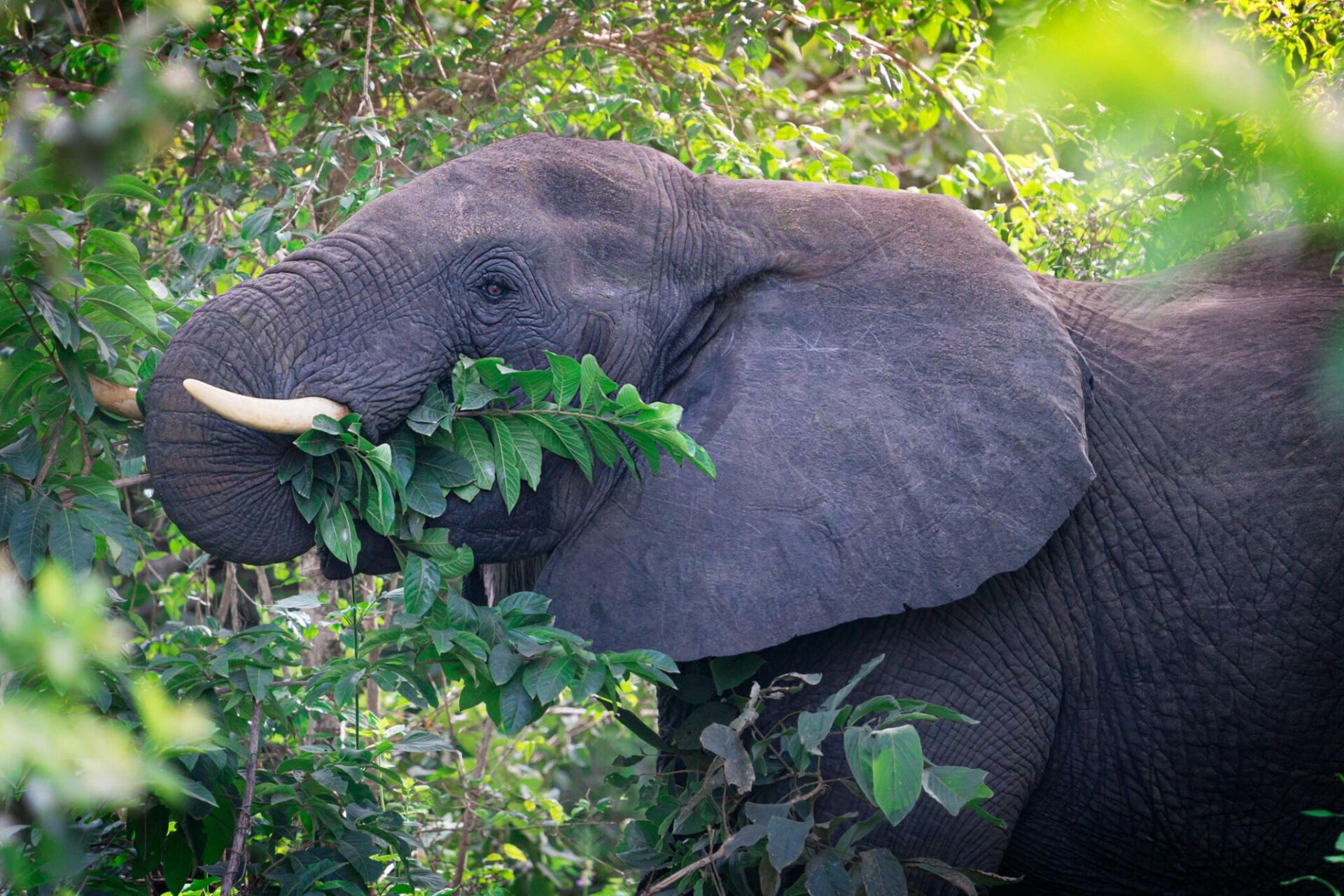Elephants Favorite Food: Unlocking the Gastronomic Secrets
The elephants favorite food and the diverse range of dietary choices that keep elephants thriving in the wild are revealed in this article.
Introduction
The majestic giants of the savanna and forests, elephants, have captured the imagination of humans for centuries. Their dietary habits are among the most fascinating features of these incredible creatures. Getting to know elephants favorite food is more than just a matter of curiosity. It also sheds light on their ecological roles, survival, and delicate ecological balance.
Elephants Favorite Food
Elephants enjoy eating tree bark because it contains calcium and rough material that assists in the digestion of their food. They use their tusks to cut into the trunk of trees and pull off strips of bark to consume.

Unveiling the Diverse Palate of Elephants in Detail
It is important to note that elephants, being among the largest land mammals in the world, maintain the dignity of being strict herbivores. This distinction significantly influences and shapes their dietary habits.
Feasting on a Botanical Buffet
- Munching on Greens: Elephants, these colossal beings of the wild, boast an impressive affinity for a diverse botanical buffet. Among their favorite plants are grasses, leaves, and twigs, with a particular preference for grasses. In particular, savanna grass and reed grass stand out as staples. These not only provide a nutritional boost, but also fulfill their hydration needs, enhancing their general health.
- Embracing Leafy Greens: When one digs deeper into their gastronomic choices, one finds that they have a variety of leaves to choose from, including leaves from acacia, baobab, and marula trees. In order for these gentle giants to remain robust and healthy, these foliage varieties contain essential nutrients.
Savoring Fruits of the Land
- Delighting in Fruits: Fruit consumption by elephants is truly delightful. Mangoes, bananas, and papayas are among their favorite fruits. As well as providing a burst of natural sugars, these colorful and juiciness treats provide a high dose of essential vitamins essential to their overall health and well-being.
- Nurturing their Sweet Tooth: A desire for sweetness is not exclusive to humans, as elephants also enjoy the sweet, succulent taste of watermelons and pineapples. These fruits satisfy the taste buds as well as the nutritional needs of these majestic animals.

Rooting for Roots and Bark
- Craving the Underground Bounty: Roots, bulbs, and tubers are integral parts of elephants’ dietary diets. These earthy delights not only offer a unique taste, but they also provide them with nutrients. Carrots, beets, and sweet potatoes are among the underground treasures that elephants enjoy.
- Bark Bonanza: It is important to note that elephants consume the bark of certain trees in addition to their traditional diet. They prefer African ebony bark and red bushwillow bark. These barks not only provide sustenance, but also provide them with a variety of textures.
The Essential Role of Water
The elephant’s dietary routine does not include food, but water holds unparalleled importance. In addition to quenching their thirst and aiding in digestion, water stands as a crucial element in ensuring their well-being and vitality, as these majestic creatures show a profound appreciation for fresh water sources.
Nutritional Insights and Dietary Patterns
It is critical to have a clear understanding of what constitutes an elephant’s diet in order to gain insight into their nutritional needs. These giants rely primarily on high-fiber vegetation as their main source of nutrition.
They consume a variety of grasses, foliage, and organic fruits, which provide a rich source of essential nutrients. Grasses such as Bermuda, Fountain, and Rhodes contribute a substantial portion of their diet.
The diverse foliage of trees such as acacia, baobab, and tamarind not only adds flavor to elephants’ diet, but they also contain varying levels of nutrients.
In addition to serving as seasonal treats, tropical fruits such as mangoes, bananas, and berries provide a burst of essential vitamins, supplementing a person’s nutritional intake.
As their diet is high in fiber, elephants’ dietary patterns demonstrate the importance of a varied yet nutritionally balanced intake, essential for their overall well-being.
FAQs
What are some uncommon foods elephants enjoy?
There is no doubt that elephants enjoy a variety of tastes; however, some lesser-known favorites include marula fruits and the bark from the baobab tree.
Do elephants have a favorite fruit?
There is no doubt that elephants are particularly fond of mangoes, as they enjoy both the taste as well as the nutritional benefits they provide.
How much food does an elephant consume daily?
According to its estimated feeding habits, an adult elephant consumes around 200-250 kilograms of food per day, ensuring that it is able to meet the substantial energy requirements of its body.
Can elephants consume meat?
Even though elephants are known to consume mainly vegetation, there has been evidence that elephants have also been observed investigating carcasses or consuming small amounts of meat.
What happens if elephants don’t get their favorite food?
When there is a lack of preferred foods, their health and vitality may be affected, potentially leading to nutritional deficiencies and other health issues.
Do elephants have a sense of taste?
As a matter of fact, elephants possess a sense of taste, exhibiting preferences for certain flavors and textures based on their environment.
Conclusion
An understanding of elephant dietary preferences illuminates the intricate relationship between these magnificent creatures and their natural environment. In addition to maintaining their vitality, elephants also play a crucial role in maintaining the ecological balance of their surroundings through the diverse array of foods they consume.







